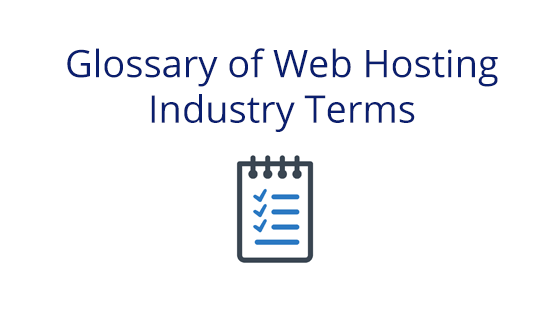What is Shared Hosting and When to Use it
You want to get a website online—maybe it’s for your business, a personal project, or a portfolio. But when you start looking at hosting options, the jargon hits fast: VPS, dedicated servers, shared hosting. Which one makes sense if you’re just getting started?
For most beginners and small sites, shared hosting is the easiest, most budget-friendly path. It’s a simple way to launch a website without having to stress over server management or complicated setup. Plus, you avoid overpaying for resources you don’t need.
In this post, we’ll break down exactly what shared hosting is, why it’s a smart choice for many website owners, and how providers like Pair Networks help keep things secure and smooth.
What is Shared Hosting?
Many website beginners ask, “What is a shared web hosting service?”
Put simply, it’s an easy and affordable way to get a website online, even if you’ve never done it before. With shared hosting, your account lives on a server alongside other accounts. Everyone on that server shares things like storage space, bandwidth, and processing power — which is part of what keeps the cost low.
It’s kind of like living in an apartment building: you have your own private space, but behind the scenes, you’re splitting the same utilities. Your files and account remain separate from everyone else’s, so you don’t have to worry about privacy.
Shared hosting works especially well for personal blogs, small business websites, online portfolios, and anyone just starting out. And while all accounts share server resources, reliable hosts like Pair Networks actively monitor things to make sure one bad neighbor doesn’t affect everyone else.
Dedicated vs Shared Hosting
When you’re choosing web hosting, one of the biggest decisions you’ll make is the type of hosting you want. The differences come down to how the server is used.
If shared hosting is the beginner-friendly, simple option, dedicated hosting is its more robust, stand-alone sibling.
As we said earlier, with shared hosting, your account lives on a server with other accounts. Everyone on that server splits the same pool of resources. It’s a lot like renting an apartment. You have your own space, but you share the building’s water, electricity, and infrastructure with your neighbors.
Dedicated hosting, on the other hand, gives you an entire server to yourself. There’s no sharing. You get full access to all the server’s power, and you can customize it however you want. This is more like owning a house. You’re in full control, but you also pay more for it.
Shared hosting is usually best for smaller sites with lower traffic. It’s much more affordable and, while it doesn’t come with the added server customizations, it’s perfectly suited for a beginner or small website. Dedicated hosting is better for large businesses, high-traffic websites, or people who need more control over their hosting environment.
How Shared Hosting Works
Shared hosting works by putting multiple accounts on the same physical server. Each account on that server gets its own space to store files and manage its websites. Even though the server is shared, the accounts are kept separate. That way, your account stays secure and private.
Everyone on the server pulls from the same set of resources. That’s why we have resource limits! These limits help keep everything fair across accounts on the server. If one account gets a sudden spike in traffic, it might use more of the server’s power for a little while. This can affect performance for the other accounts, especially if the server isn’t managed well. Most shared hosting providers, including Pair Networks, work hard to keep things running smoothly, so it’s rare you’ll notice slowdowns unless your site (or someone else’s) is really pushing the limits.
If that happens, we have safeguards in place to keep everything fair. And if a site does start using more than its share, we’ll step in to help. That might mean working with the site owner to upgrade to a plan with more resources, so their site runs the way it should without affecting anyone else.
If you choose Pair Networks’ shared hosting, you get access to our custom Account Control Center (or ACC for short!). From there, you can manage your files, emails, domains, and more! We also offer an array of tools, like our one-click software installer, making it easy to get started even if you’ve never built a website before.
Pros and Cons of Shared Hosting
Shared hosting has a lot going for it, especially if you’re new to building websites. But like any hosting option, it comes with a few trade-offs. Here’s a closer look at the benefits and drawbacks.
Pros of Shared Hosting
- Low cost: Shared hosting is one of the cheapest ways to get a site online. It’s a great fit for anyone working with a limited budget, including small businesses, personal projects, and new websites.
- Easy to use: Pair’s shared hosting plans include beginner-friendly tools and a custom control panel that lets you manage your account without touching the command line. Tasks like adding domains, setting up email, or installing popular software can all be done with just a few clicks.
- No server maintenance: If you’re using a managed hosting service like Pair Networks, you won’t need to worry about updates, security patches, or hardware upkeep. We handle the backend so you can focus on your site.
- Room to grow: Shared hosting is a great way to get started, and as your site grows, we make it easy for you to upgrade to a more powerful plan. You don’t need to commit to a big plan right away. And, if your site eventually outgrows shared hosting entirely, you can move up to one of our VPS plans. Want to learn more? Check out What is VPS hosting? for more information.
Cons of Shared Hosting
- Shared resources: Since you’re sharing the server with other accounts, your site only gets a portion of the overall resources. If another site uses more than its share, it can slow things down for everyone else on the server. Pair has protections in place to help prevent this from happening, but it’s still something to keep in mind.
- Less control: VPS and Dedicated hosting plans offer more customization options in the Account Control Center. With shared hosting, you won’t have the same level of control. That’s fine for most users, but if you need more flexibility or customization, it might feel limiting.
- Basic security: Your files are separate from other accounts, but Shared hosting accounts still share a server. That means you’re depending on the host to keep the server patched and secure. For most sites, that’s more than enough (as long as you choose a reliable and trustworthy host like Pair), but if you’re dealing with sensitive data, you may want a more isolated hosting type like VPS or Dedicated.
- Bad Actors: Since you share a server with other accounts, poor behavior from another account, like using outdated software or violating terms, can sometimes impact the server’s overall performance. That’s why it’s important to host with a provider that actively monitors for this and keeps the systems secure. At Pair, we manage our servers closely to prevent these issues before they affect you.
Who Should Use Shared Hosting?
Shared hosting is a good fit for anyone who wants to get a website online without spending a lot or getting too technical. If you’re building a personal blog, a site for your small business, an online portfolio, or even just testing out an idea, shared hosting gives you what you need to get started.
It works best for websites that don’t expect huge traffic right away. You don’t need to know how to manage a server, and you’re not stuck with something more powerful than you need. With Pair Networks, you can also use our software installation manager (PairSIM) to easily install popular website-building tools like WordPress, so you can build and launch your site easily.
And if things change, no problem. You can always move to a bigger or smaller plan as your site changes.
How to Choose the Right Shared Hosting Plan
When you’re looking at shared hosting plans, it helps to know exactly what matters. Here are a few things to pay attention to.
Does It Provide Enough Storage and Bandwidth?
Make sure there’s enough room for your files and enough bandwidth to handle visitors. See How Does Bandwidth/Transfer Work?
Does It Limit the Number of Websites?
Are you planning on having more than one website? If so, then you need to choose your hosting plan accordingly. Many plans have website limits, so you need to make sure that the plan you’re considering allows you to create the number of sites you want.
Does It Have the Right Add-Ons?
Features like custom email, SSL certificates, automatic backups, and security tools can make running your site a lot easier. When everything comes from the same provider, it all works together the way it should. You save time, avoid extra setup, and don’t have to worry about things breaking behind the scenes.
Is the Customer Support Sufficient?
If something breaks, you want someone you can talk to through the channels that are easiest for you. Want to chat via IM? Make sure the host you’re considering has a chat option (Pair does). Prefer to talk over the phone? Check with the prospective host to make sure they have reachable phone numbers that are available at the times you’d likely call. Pair Networks Support, for example, is available 24/7, even on holidays.
Will You Have Room to Grow?
Even if you don’t need it now, it’s helpful to know if you can upgrade or downgrade later without hassle. For example, at Pair, you can initiate an upgrade or downgrade within the same hosting type at any time in the Account Control Center.
Find the Right Hosting Plan For Your Website
If you’re still weighing whether shared hosting is the right fit for your website, Pair Networks can help make the decision easier. Our hosting comparison guide breaks down the key differences between shared, VPS, and dedicated hosting, so you can find the option that matches your needs and budget.
Frequently Asked Questions
Is Shared Hosting Secure?
Yes, shared hosting is secure for most websites. Your account and files are kept separate from everyone else’s, even though you’re on the same server. You aren’t sharing access, just the physical space. As long as your hosting provider keeps things patched and up to date, shared hosting is a safe and dependable option for blogs, portfolios, and small business sites.
But that is why it’s so important to choose a trusted hosting provider. A non-trustworthy hosting provider might have lax security, resulting in hosting nightmares like one person dominating the server, spreading malware to other accounts, and more.
Choose a trusted hosting provider like Pair to ensure that your hosting account is safe and handled correctly.
Can I Run WordPress on Shared Hosting?
You can. Shared hosting makes it easy to use WordPress. Pair Networks offers a software installation add-on that gives you the ability to install WordPress with one click, so you don’t need to set anything up manually. This setup works well if you’re building a blog, business site, or personal project.
Can I Upgrade Later?
Yes. If your site grows or needs more power, you can switch to a different hosting plan. You won’t lose your content or have to start over. At Pair, we’ll help you find the right fit when the time comes.
Is Shared Hosting as Fast as Dedicated Hosting?
Not quite. With a dedicated server, your site gets all the server’s resources to itself, which usually means better performance. Shared hosting is still fast enough for smaller sites, but if your site gets a lot of traffic or runs heavy features, you might notice a difference.



